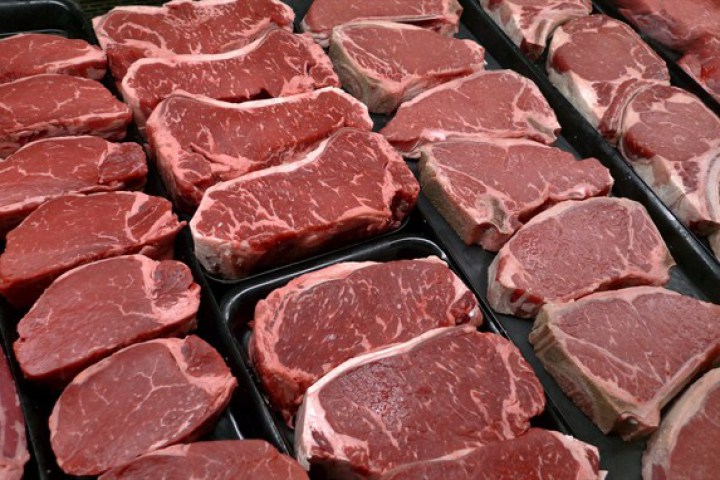Move over, oatmeal and apples. People trying to lose weight are often told to turn to fibre so they feel more satisfied after a meal but new research suggests protein does the trick as well.

High-protein diets are gaining popularity for a reason — they help dieters feel full faster even if they’re eating fewer calories overall, according to a new study out of Purdue University.
“A good deal of evidence suggests that protein activates satiety hormone release and so should be most strongly tied with fullness ratings,” lead researcher, Dr. Richard Mattes, said.
But he said that handfuls of studies are conducted with small populations or they use different approaches, making consistent findings spotty. For his work, he reviewed dozens of studies to come up with a widespread conclusion.
“Our study combined multiple experiments to confirm the presence of an effect,” he explained.
READ MORE: Follow this one tip if you’re trying to lose weight, study suggests
Turns out, protein — even a slight increase in how much dieters were eating — helped with fullness and feeling satisfied after a meal.
Food that’s high in protein includes lean beef, eggs, chicken, fish, yogurt, nuts and cheese.
But it’s by no means a “magic bullet,” Mattes warned. Dieters still need to cope with other challenges in their weight loss journey.
“Feelings like hunger and fullness are not the only factors that influence intake. We often eat for other reasons. Anyone who has ever felt too full to finish their meal but has room for dessert knows this all too well,” he said.
READ MORE: Will the Paleo diet make you fat? Why this controversial study is angering diehard supporters
Fad diets, such as the Dukan or Paleo diets, insist on dieters eating plenty of protein.
The premise of the Dukan diet — made famous by Kate Middleton, for example — has dieters go on an all-you-can-eat protein binge. They can move into incorporating certain vegetables and only on certain days. Dieters abandon carbohydrates and fruits for weeks at a time.
The Paleo diet is about eating just like caveman did: whatever could be hunted for is fair game — meat, fish, nuts, leafy greens, seeds and vegetables.
READ MORE: 9 diet and weight loss mistakes you’re making
Starches like pastas and cereal, and processed fare, like cookies and candy, weren’t eaten by our ancestors so they’re off the table.
The Atkins Diet follows a similar model: its emphasis is on protein and forbidding carbohydrates.
Right now, Canada’s Food Guide calls for two servings of meat (and alternatives) for women and three for men.
A single serving looks like:
- Two eggs
- Two tablespoons of peanut butter
- A three-ounce steak
- Three ounces of chicken
- Or a quarter of a cup of nuts
The researchers say they still don’t know exactly how much protein is needed to feel full for longer periods of time or when to eat it. They’re urging dieters not to binge on protein “to the point of excess.”
Instead, you’re better off slowly adding more protein to your diet until you find your sweet spot.
READ MORE: 6 misconceptions about nutrition and healthy eating
“If these effects are sustained over the long-term — and our study only looked at short-term effects — increased protein intake may aid in the loss or maintenance of body weight,” Mattes concluded.
He said there are still some missing pieces, such as whether vegetable protein is as satisfying as animal protein or if protein shakes and protein bars deliver the same satiety.
Mattes’ full findings were published Friday in the Journal of the Academy of Nutrition and Dietetics.
carmen.chai@globalnews.ca
Follow @Carmen_Chai




Comments